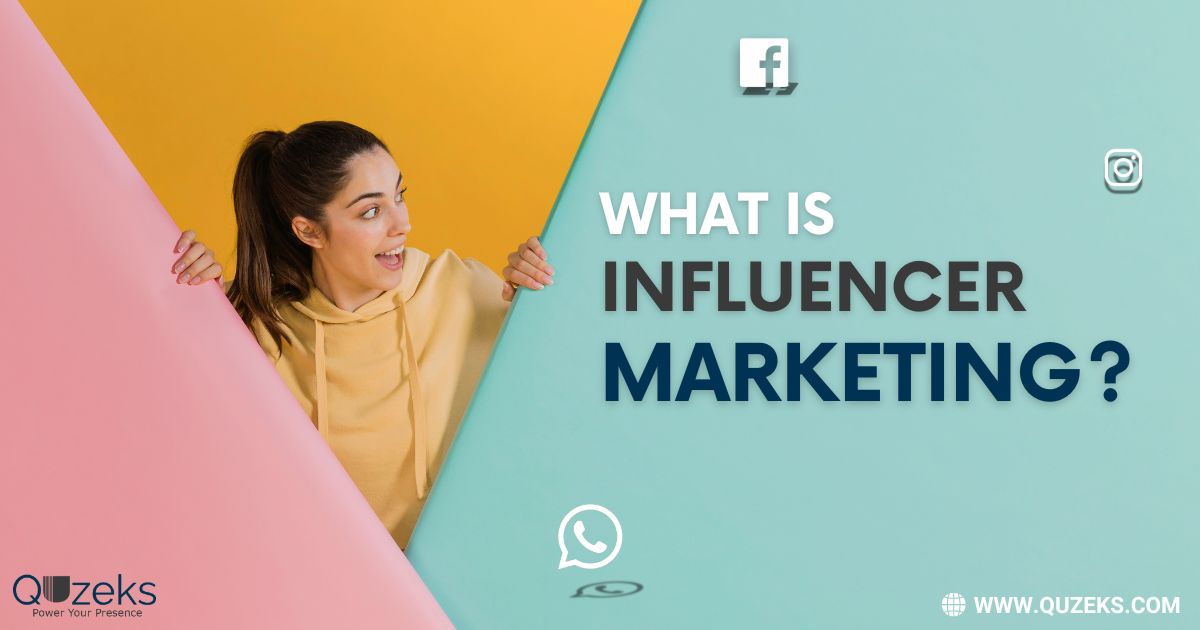- In the fast developing world of digital marketing, influencer marketing has emerged as a powerful strategy for brands to connect with their target audiences.
- Businesses are constantly searching for innovative ways to reach their target audience.
- But what exactly is influencer marketing, and how can it benefit your business?
- Let’s dive into the basics and explore why this strategy is a game-changer.
What is Influencer marketing:
- Influencer marketing is a form of social media marketing that involves collaborations between brands and individuals with a substantial following on social media platforms.
- These individuals, known as influencers, have the power to affect the purchasing decisions of their audience due to their authority, knowledge, position, or relationship with their followers.
Why Influencer Marketing?
Increased Reach and Visibility: Influencers have established a loyal follower base, which brands can tap into to expand their reach
Trust and Authenticity: Consumers trust recommendations from individuals over brands. Influencers build a rapport with their followers, making their endorsements more genuine and trustworthy.
Targeted Reach: Influencers often have a specific niche. Collaborating with them allows brands to reach a more targeted and engaged audience.
Cost-Effective: Compared to traditional advertising, marketing can be more cost-effective, especially when working with micro-influencers (influencers with smaller but highly engaged followers).
Improves SEO and Online Presence: Influencers can help drive traffic to your website, improve your SEO ranking, and boost your overall online presence.
Types of Influencers
Mega-Influencers: Celebrities and individuals with millions of followers. They have a broad reach but may be expensive to collaborate with.
Macro-Influencers: Influencers with hundreds of thousands of followers. They are more affordable than mega-influencers and still offer a wide reach.
Micro-Influencers: Individuals with 1,000 to 100,000 followers. They have a highly engaged audience and are often seen as more authentic.
Nano-Influencers: Influencers with fewer than 1,000 followers. They may have a smaller reach but often have strong influence within their local community.
Steps to Start with Influencer Marketing
Define Your Goals: Are you aiming for brand awareness, increased sales, or more followers? Clear goals will guide your strategy.
Identify the Right Influencers: Look for influencers whose audience aligns with your target market. Consider their engagement rates and content quality.
Build Relationships: Engage with influencers on social media before reaching out. Comment on their posts and share their content to build a rapport.
Create Compelling Campaigns: Work with influencers to create authentic and engaging content. Allow them creative freedom to ensure the content resonates with their audience.
Track Performance: Use analytics to measure the success of your campaigns. Track metrics such as engagement, website traffic, and sales to determine ROI.
Best Practices for Influencer Marketing:
Transparency: Ensure influencers disclose sponsored content to maintain trust.
Long-Term Relationships: Consider building long-term partnerships rather than one-off campaigns.
Diverse Content: Encourage a mix of content types, such as posts, stories, and videos, to keep the audience engaged.
Conclusion:
Influencer marketing is a powerful tool in the digital marketing landscape. By leveraging the trust and reach of influencers, brands can effectively connect with their target audience, enhance their online presence, and drive meaningful engagement.
References:
- Influencer Marketing By Wikipedia [1].
Influencer marketing is a strategy where brands collaborate with individuals who have a strong online following to promote their products or services, leveraging the influencers’ trust and reach to connect with a target audience and drive engagement.
Influencer marketing is a strategy where brands collaborate with influencers to promote their products or services. It matters because influencers have dedicated followers, which helps brands reach a wider, more engaged audience, build trust, and increase sales.
It means partnering with popular online personalities to promote products or services to their followers, leveraging their influence to reach a target audience.



